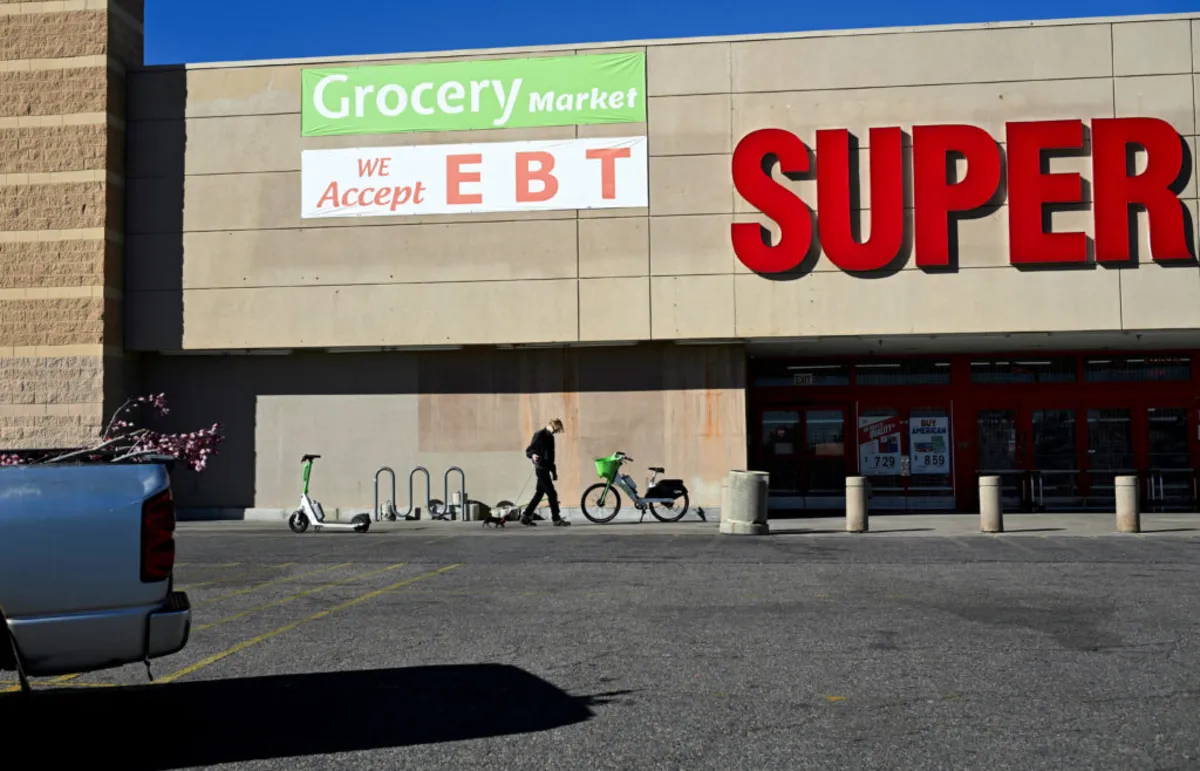
The U.S. Department of Agriculture (USDA) has officially announced that federal food aid will not be distributed as scheduled on November 1, amplifying the challenges faced by families across the nation as the government shutdown continues. This announcement comes at a critical time as many federal workers are missing paychecks, leading to increased reliance on food banks for essential support.
The USDA's notice follows a decision by the Trump administration to refrain from utilizing approximately $5 billion in contingency funds, which could have ensured the continuation of benefits through the Supplemental Nutrition Assistance Program (SNAP) into November. This vital program assists nearly 1 in 8 Americans in purchasing groceries, making its sustainability crucial for many households.
“Bottom line, the well has run dry,” the USDA notice states. “At this time, there will be no benefits issued November 01. We are approaching an inflection point for Senate Democrats.” The government shutdown, which commenced on October 1, has now become the second-longest in U.S. history, raising concerns about the welfare of millions.
The ongoing political stalemate has complicated efforts to secure funding for SNAP. The Republican administration had previously taken measures to ensure that SNAP benefits were disbursed this month. However, the impending cutoff threatens to affect a broader range of Americans, particularly those who are most vulnerable, unless an agreement is reached within the next few days.
The administration blames Democratic lawmakers for the impasse, asserting that they refuse to negotiate until Republicans agree to discussions regarding extensions of expiring subsidies under the Affordable Care Act. Conversely, Republicans insist that Democrats must first agree to reopen the government before any negotiations can take place.
In response to the looming crisis, Democratic lawmakers have reached out to Agriculture Secretary Brooke Rollins with a request to utilize contingency funds to cover the majority of next month’s SNAP benefits. However, a memo from the USDA that surfaced recently indicates that “contingency funds are not legally available to cover regular benefits.” This document specifies that these funds are reserved for emergencies, such as disaster relief, citing the recent strengthening of Hurricane Melissa as an example of the importance of maintaining these reserves.
The prospect of families potentially losing access to food aid has raised alarms in states governed by both political parties. Some states have committed to maintaining SNAP benefits even if federal payments cease, but there are significant concerns regarding the legality of such actions under U.S. government directives. Furthermore, the USDA memo clarifies that states would not be reimbursed for any temporary financial support they may provide.
In contrast, some states are proactively advising SNAP recipients to prepare for the suspension of benefits. For example, Arkansas and Oklahoma are urging recipients to locate food pantries and other local organizations that can assist in meeting their food needs during this crisis.
Senator Chris Murphy of Connecticut has publicly criticized the lack of negotiations, blaming Republicans and former President Trump for the current situation. “The reality is, if they sat down to try to negotiate, we could probably come up with something pretty quickly,” Murphy stated on CNN’s “State of the Union.” He expressed optimism that a resolution could be reached swiftly, allowing for the government to reopen and averting a crisis within the food stamp program.
As the situation develops, the urgency for a political resolution grows, emphasizing the critical nature of federal food aid for millions of Americans during this challenging period.